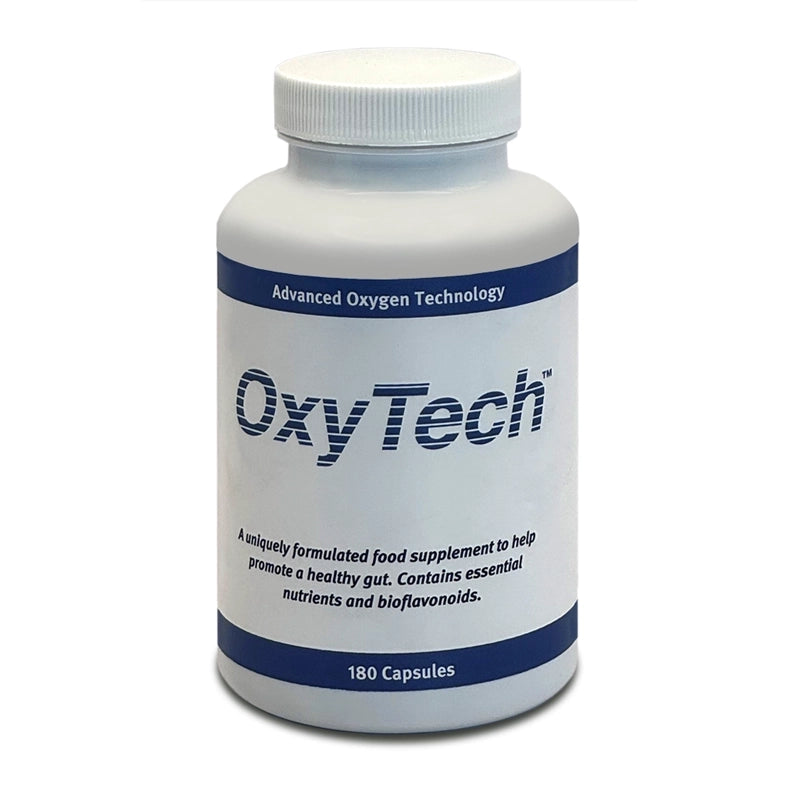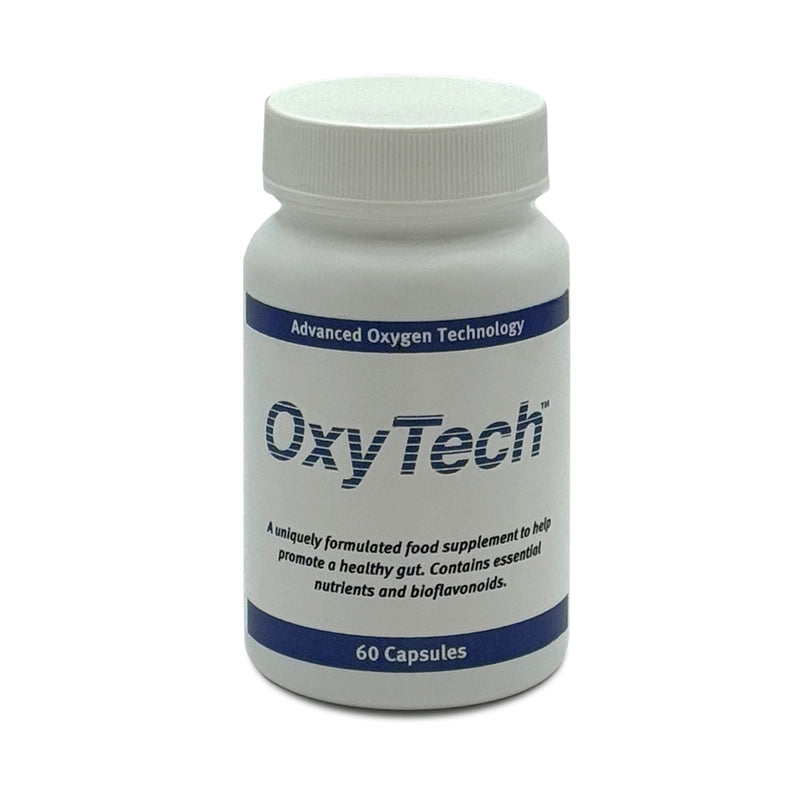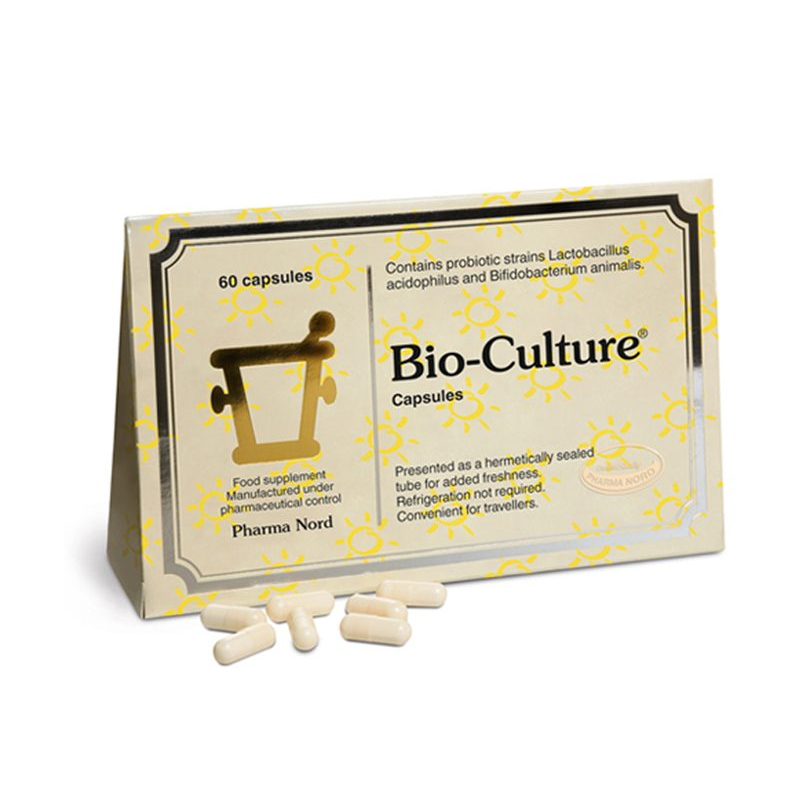Irritable Bowel Syndrome (IBS) affects an estimated 1 in 10 people in the UK, making it one of the most common gastrointestinal disorders. Yet despite its prevalence, IBS remains deeply misunderstood. For those living with the condition, symptoms like abdominal pain, bloating, excessive gas, diarrhoea, constipation, or a frustrating combination of all three can feel unpredictable and overwhelming. IBS isn’t just uncomfortable, it can disrupt every part of daily life, from social plans and work routines to emotional wellbeing.
We See You And You’re Not Alone
If you’re navigating the ups and downs of IBS, you’ve likely felt the emotional toll it can take. The frustration of flare-ups, the anxiety around meals, and the sheer exhaustion of searching for relief can wear anyone down. You’re not imagining it, IBS can be physically and mentally exhausting. But the good news is, there are natural and practical strategies that may help ease your symptoms and support long-term gut health.
What This Article Offers
This article explores a range of natural, holistic approaches to managing IBS. From diet and lifestyle tweaks to gut-friendly supplements, our aim is to give you useful tools you can try, no gimmicks or unrealistic promises, just thoughtful suggestions rooted in common sense and natural health principles.
One supplement we’ll touch on is OxyTech, a gentle, oxygen-based colon cleanser that some users find helpful as part of a wider gut support strategy. While not a cure, it’s one of several options that may play a role in improving your digestive health.
Important: Always speak to a healthcare professional before making significant changes to your diet, supplement routine, or lifestyle, especially if you have a pre-existing health condition or are taking medication.
Section 1: Dietary Strategies – Fueling Your Gut for Relief

When it comes to managing IBS, your diet is often the first and most powerful tool in your toolkit. Food choices can either soothe the gut or spark flare-ups, which is why understanding your personal dietary landscape is key. Rather than following a one-size-fits-all plan, it’s about listening to your body and tailoring your intake accordingly.
Understanding Trigger Foods
IBS triggers can vary wildly from person to person. While one individual might tolerate dairy without issue, another could find it leads to cramps or bloating. Common culprits include:
-
Dairy products
-
Gluten-containing grains
-
Caffeine
-
Alcohol
-
Spicy or fatty foods
-
Artificial sweeteners such as sorbitol or mannitol
To help identify your own triggers, keeping a detailed food and symptom diary can be incredibly useful. Track what you eat, when symptoms occur, and note any patterns that emerge over time.
Importantly, this isn’t about swearing off entire food groups forever. Elimination should be strategic and guided, preferably with input from a dietitian or healthcare provider. The goal is personalisation, not restriction for restriction’s sake.
The Low FODMAP Diet
One of the most evidence-based dietary approaches for IBS relief is the Low FODMAP diet. FODMAPs, which stands for Fermentable Oligosaccharides, Disaccharides, Monosaccharides, and Polyols are types of short-chain carbohydrates that are poorly absorbed in the small intestine. For people with IBS, they can ferment in the gut, leading to gas, bloating, diarrhoea, and discomfort.
How it works involves three structured phases:
-
Elimination – Temporarily removing all high FODMAP foods.
-
Reintroduction – Slowly reintroducing specific FODMAP groups to identify which ones cause issues.
-
Personalisation – Creating a long-term eating plan that limits only the problematic FODMAPs.
This diet has a high success rate in reducing IBS symptoms, with many people reporting significant relief. However, it's not intended to be followed indefinitely, and because of its complexity, it’s best undertaken with the support of a qualified dietitian. This ensures nutritional balance and helps prevent unnecessary long-term restrictions.
Fibre – The Double-Edged Sword
Fibre can be both friend and foe for those with IBS. Understanding the different types and how they affect your body is vital.
-
Soluble fibre dissolves in water and forms a gel-like substance in the gut. Found in oats, beans, lentils, bananas, apples, and psyllium husk, it can help regulate bowel movements and calm the digestive tract. Psyllium, in particular, is well-researched and often tolerated by people with both constipation and diarrhoea-predominant IBS.
-
Insoluble fibre, found in whole grains, raw vegetables, and wheat bran, adds bulk to stools but can also irritate a sensitive gut, sometimes worsening symptoms like bloating or cramping.
Whatever type of fibre you’re increasing, do so gradually. A sudden jump in fibre can cause more harm than good. Always pair fibre with plenty of water, aim for at least 6–8 glasses per day to support smoother digestion and avoid constipation.
Mindful Eating Practices
Sometimes, how you eat is just as important as what you eat.
-
Slow down: Chewing food thoroughly and eating slowly helps prevent air swallowing, which can lead to bloating and gas. It also gives your digestive system a chance to process food more efficiently.
-
Regular meals: Sticking to consistent mealtimes can help regulate your gut’s natural rhythm.
-
Smaller, frequent meals: Instead of three large meals, try eating four to six smaller meals throughout the day. This can reduce the strain on your digestive system and minimise symptom flare-ups.
Section 2: Targeted Natural Supplements

While diet and lifestyle form the foundation of IBS management, some individuals find additional relief through natural supplements that support gut function, soothe the digestive tract, and promote a healthier internal environment. Below, we explore some of the most commonly used and promising natural options, including OxyTech, a popular product from Dulwich Health.
OxyTech: Supporting a Healthy Gut Environment
OxyTech is an oxygen-based colon cleanse supplement developed by Dulwich Health, a trusted natural health company with roots dating back to 1986. Formulated to support a clean and balanced gut environment, OxyTech is often used by those seeking a gentle and non-habit forming way to improve bowel regularity.
How It Works
OxyTech contains magnesium hydroxide, which reacts in the body to release oxygen. This oxygen-rich environment is thought to encourage the growth of friendly gut bacteria, which in turn aids the breakdown of fibre and supports a smoother, more natural cleansing process. Unlike stimulant laxatives, which can be harsh and habit-forming, OxyTech aims to assist the body’s natural detoxification processes without causing dependency.
Benefits:
-
Encourages regular and gentle colon cleansing
-
Aids the breakdown of fibre in the digestive tract
-
Offers a non-habit forming alternative to traditional laxatives
-
May help reduce bloating, ease constipation, and support overall gut health
Customer Experience
While scientific studies on OxyTech are limited, anecdotal reports indicate that many users with IBS experience positive outcomes. Feedback from users suggests improved regularity, a reduction in discomfort, and a greater overall feeling of wellbeing. For some, it becomes part of a broader gut health routine rather than an emergency fix.
Usage Advice
Children over 7 and adults can start by taking 1-2 capsules of OxyTech, at least one hour after the last meal of the night. Regulate dosage as required, or as recommended by your healthcare professional, and maintain for a minimum of 10 days. Reduce dosage to a minimum recommended for daily maintenance. It’s important that you drink plenty of water with OxyTech capsules and during the day.
Note: OxyTech is a supplement, not a cure, and its effects may vary. Always consult a healthcare professional before use, especially if you’re taking other medications or managing an underlying health condition.
Probiotics
Probiotics are live microorganisms that can help rebalance the gut microbiome, potentially reducing IBS symptoms such as bloating, irregular bowel movements, and gas.
Key Strains for IBS Relief
-
Bifidobacterium infantis: Often studied for its role in reducing abdominal pain and bloating.
-
Lactobacillus species: May help with diarrhoea, constipation, and immune function in the gut.
Sources of Probiotics
-
Fermented foods such as yogurt with live cultures, kefir, sauerkraut, kimchi, miso, and kombucha.
-
Probiotic supplements, which offer targeted strains in measured doses.
Considerations
Probiotics are generally safe, but effectiveness can vary between strains and individuals. Some may feel benefits quickly, while others may need to trial different formulations over several weeks to see improvements.
Peppermint Oil
Used for centuries as a digestive aid, peppermint oil is one of the most research-backed natural remedies for IBS.
How It Works
Peppermint oil has antispasmodic properties that help relax the smooth muscles of the intestines. This can reduce cramping, bloating, and gas, particularly in those with IBS.
Best Form
Look for enteric-coated capsules, which are designed to bypass the stomach and release in the intestines, maximising benefits and reducing the risk of heartburn.
Ginger
A familiar kitchen ingredient with a long history in natural medicine, ginger offers several potential benefits for IBS sufferers.
Why It Helps
Ginger has anti-inflammatory and anti-nausea properties, and may help calm an irritated digestive tract. It’s also thought to reduce intestinal spasms and discomfort in some individuals.
How to Use
-
Fresh ginger in meals or smoothies
-
Ginger tea
-
Ginger supplements or capsules
Aloe Vera (With Caution)
Aloe vera juice and supplements are sometimes used for digestive health, though evidence is mixed and caution is warranted.
Potential Benefits
Some preliminary studies suggest that purified aloe vera may reduce abdominal pain and flatulence due to its anti-inflammatory effects.
Important Considerations
Whole-leaf aloe vera contains aloin, a laxative component that can cause diarrhoea, dehydration, and cramps. If you choose to try aloe, opt for purified, decolourised products and speak to a healthcare provider first.
Reminder: Aloe vera is not universally recommended for IBS and may not be suitable for everyone.
Section 3: Lifestyle Adjustments for Gut Harmony

Managing IBS goes well beyond food choices and supplements. Your lifestyle including how you manage stress, move your body, and rest has a powerful influence on your gut health. These elements often determine whether your digestive system stays balanced or falls into flare-up mode.
Stress Management
The Brain-Gut Connection
The gut and brain are in constant communication via the gut-brain axis, a two-way signalling system that links emotional and cognitive centres in the brain with the digestive system. When stress levels rise, this delicate balance can be disrupted, leading to exacerbated IBS symptoms such as cramps, bloating, and irregular bowel movements.
For many people with IBS, stress isn’t just a trigger, it’s a core driver of symptoms. That’s why learning to manage emotional and mental wellbeing is essential for gut harmony.
Techniques for Calming the Nervous System
-
Mindfulness and Meditation
Practices such as deep breathing, body scans, guided meditation, and yoga help activate the parasympathetic nervous system, your body’s “rest and digest” mode. Just ten minutes a day can help reduce tension and create a calmer internal environment. -
Cognitive Behavioural Therapy (CBT)
CBT is a well-established psychological approach that has shown strong results in helping IBS sufferers manage their symptoms. It works by identifying and reframing unhelpful thought patterns related to food, pain, or anxiety, which in turn can lead to physical symptom relief. -
Gut-Directed Hypnotherapy
This specialised form of hypnotherapy focuses on helping individuals achieve a deep state of relaxation, while receiving suggestions to promote digestive ease and reduce gut sensitivity. Studies show it can be particularly helpful for people with moderate to severe IBS.
Movement That Makes a Difference
Engaging in regular physical activity is one of the simplest and most accessible ways to improve IBS symptoms. Exercise helps by:
-
Stimulating bowel movements, especially useful for constipation-predominant IBS
-
Lowering cortisol (stress hormone) levels
-
Enhancing overall mood and energy levels
Best Types of Exercise for IBS
While high-intensity workouts may be beneficial for some, those with IBS often do better with gentler forms of movement that are easier on the system. Consider:
-
Walking – daily, low-impact, and easy to maintain
-
Swimming – full-body exercise that’s gentle on joints and digestion
-
Cycling – great for cardiovascular health
-
Yoga or Pilates – excellent for relaxation and core strength
Note: Avoid pushing your body to the extreme. Overtraining or high-intensity workouts can sometimes trigger IBS symptoms, particularly in sensitive individuals. Pay attention to how your body responds and adjust your routine accordingly.
Adequate Sleep
Why Sleep Matters for Gut Health
Poor-quality or irregular sleep doesn’t just leave you feeling tired, it can also disrupt your gut microbiome and make your digestive system more reactive. Research suggests that people with IBS who experience sleep disturbances often report more severe and persistent symptoms.
Tips for Better Rest
-
Stick to a consistent sleep schedule, even on weekends
-
Avoid screens for at least 30 minutes before bedtime
-
Create a sleep-conducive environment – keep the room dark, quiet, and cool
-
Consider a relaxing wind-down routine with herbal tea, gentle stretches, or journaling
Good sleep hygiene can lead to more stable moods, better stress resilience, and improved gut function, all crucial for managing IBS day-to-day.
Finding Your Balance: A Holistic Path to IBS Relief
Living with IBS can feel like navigating a maze with no clear exit. But with the right blend of dietary adjustments, targeted natural supplements, and lifestyle changes, many people find meaningful, long-term relief. What works best will be unique to your body, it’s about tuning in, making small, sustainable changes, and listening to how your gut responds.
From identifying personal food triggers and trialling the Low FODMAP approach, to exploring supplements like OxyTech, probiotics, or peppermint oil, there are a variety of natural strategies that can support your journey. Combined with stress-reducing practices and quality sleep, these tools can help bring your digestive system back into balance.
Remember: Always consult a healthcare professional before making major changes to your routine, especially if you are managing a medical condition or taking prescribed medications.
Ready to Take the Next Step?
If you’re looking to support your gut health naturally, OxyTech from Dulwich Health could be a gentle addition to your wellness plan. With over 30,000 customers served and decades of experience in natural health, Dulwich Health offers trusted solutions for those seeking better digestive balance.
👉 Explore OxyTech and the full range of natural health products at dulwichhealth.co.uk
Take small steps, stay consistent, and be kind to your gut, relief is possible.




